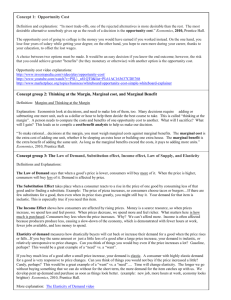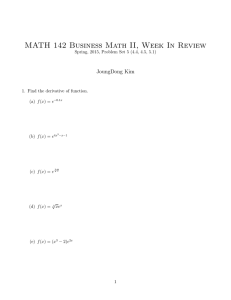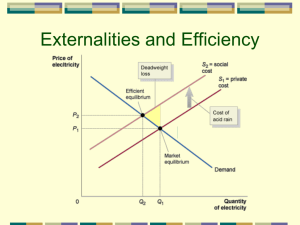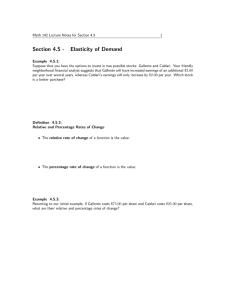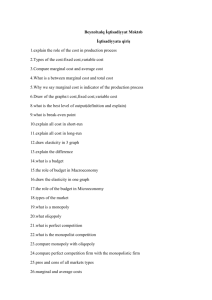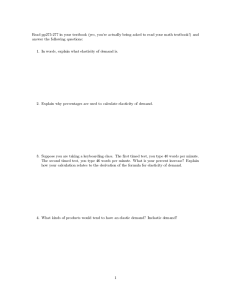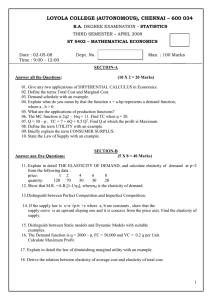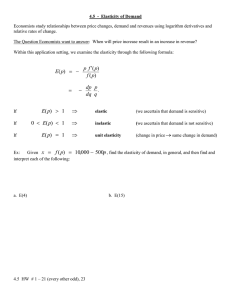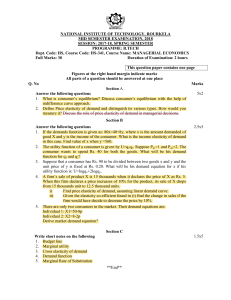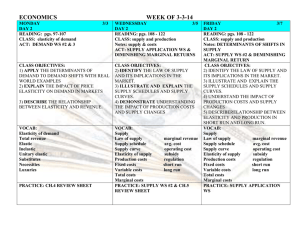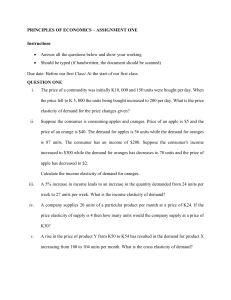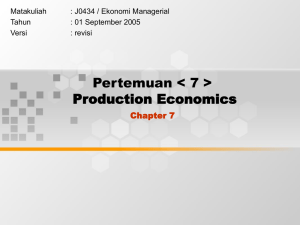Econ 3007 Economic Policy Analysis Reforming the Tax System January 2013
advertisement
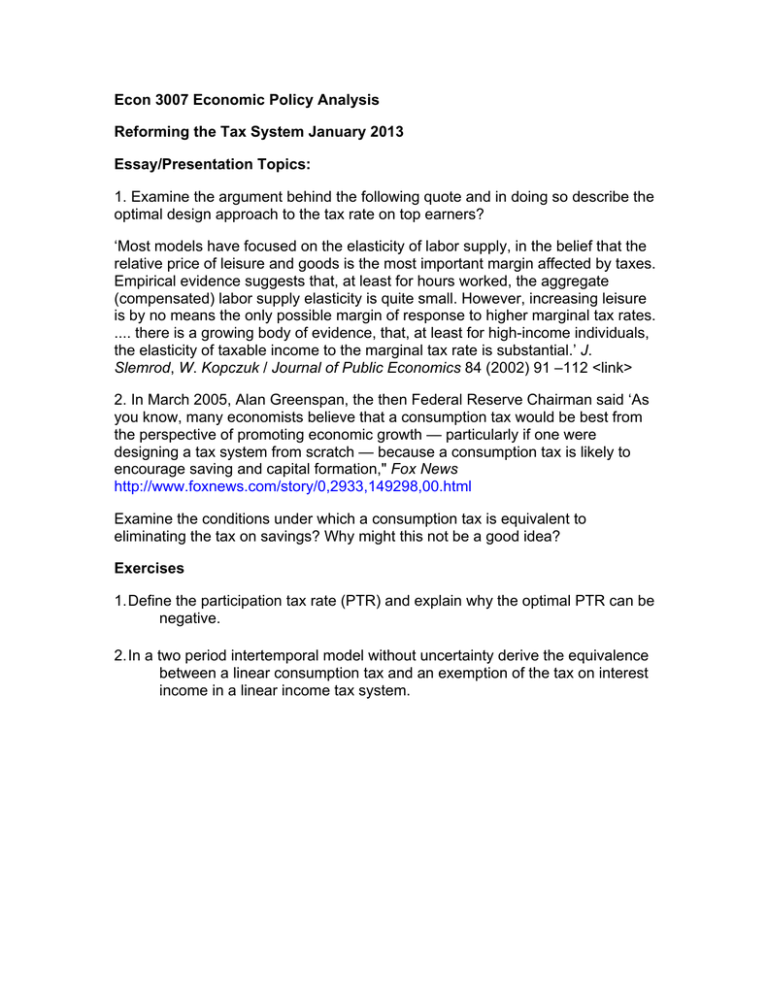
Econ 3007 Economic Policy Analysis Reforming the Tax System January 2013 Essay/Presentation Topics: 1. Examine the argument behind the following quote and in doing so describe the optimal design approach to the tax rate on top earners? ‘Most models have focused on the elasticity of labor supply, in the belief that the relative price of leisure and goods is the most important margin affected by taxes. Empirical evidence suggests that, at least for hours worked, the aggregate (compensated) labor supply elasticity is quite small. However, increasing leisure is by no means the only possible margin of response to higher marginal tax rates. .... there is a growing body of evidence, that, at least for high-income individuals, the elasticity of taxable income to the marginal tax rate is substantial.’ J. Slemrod, W. Kopczuk / Journal of Public Economics 84 (2002) 91 –112 <link> 2. In March 2005, Alan Greenspan, the then Federal Reserve Chairman said ‘As you know, many economists believe that a consumption tax would be best from the perspective of promoting economic growth — particularly if one were designing a tax system from scratch — because a consumption tax is likely to encourage saving and capital formation," Fox News http://www.foxnews.com/story/0,2933,149298,00.html Examine the conditions under which a consumption tax is equivalent to eliminating the tax on savings? Why might this not be a good idea? Exercises 1. Define the participation tax rate (PTR) and explain why the optimal PTR can be negative. 2. In a two period intertemporal model without uncertainty derive the equivalence between a linear consumption tax and an exemption of the tax on interest income in a linear income tax system.
